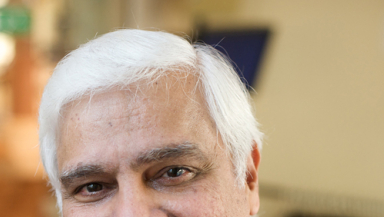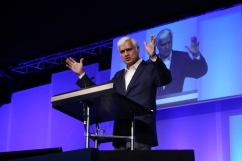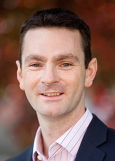
The 'new atheists' have had their day, says Ravi Zacharias.
Speaking to Christian Today, the author and speaker who chairs the Oxford Centre for Christian Apologetics (OCCA) said that "the tide is turning" for Christians.
Prominent atheists such as Richard Dawkins and Daniel Dennett have "overplayed their hand", he said.
He accused comedians who mocked the Judeo-Christian worldview of "intellectual cowardice", saying: "They would never mock Islam, for obvious reasons, or Hinduism, for fear of being culturally prejudiced."
Atheist campaigners "have had their day", he said, adding: "It's ironic that people have minted millions on arguing for God's non-existence. They have a religious and evangelical fervour of their own, but their time has peaked."
He said that four or five years ago there would be many disciples of Richard Dawkins in OCCA audiences. "Now, though, they want to raise personal questions of meaning," he said. "You see them here and there, but there is nowhere near the volume that there was."
Zacharias spoke of the need for apologetics – the intellectual defence of Christian truth – in removing obstacles to faith. "Apologetics is at once the most needed discipline, and the most easily abused," he said. "If it is a process of destroying your opponent, it is not biblical apologetics – it's just another power grab.
"It is about clarifying the truth and pointing to the relationship of a saved walk with God."
He said that the question of suffering, was one of the most frequently raised by questioners. It's the topic he addresses in his new book Why Suffering?, co-authored with Vince Vitale. "How could an all-powerful, all-loving God allow this volume of suffering? How do we truly find an answer for it?"
In a perspective he said was "counter-intuitive", Zacharias said realising that such a question needed answering was itself a pointer to faith. "Is it a legitimate question if there is no moral first cause? What becomes of moral reasoning? In that case there is no such thing as good or evil."
In questions about suffering, he said, there was "the assumption that human life has intrinsic worth. For human beings to suffer at the hands of another is unjust and immoral. When we raise the question we assume value and worth.
"We can't do away with the existence of God. I believe that the Judeo-Christian worldview is the only one that does justice to this."
However, he added: "Anyone writing on this subject should never think that they have said the last word. There is no one-size-fits-all; suffering is a very personal thing.
"Our goal was not to leave it at a cerebral level but to help people think through their assumptions. In the Gospels we see a Saviour who entered into people's suffering, transformed their view of it and helped them deal with it."
















